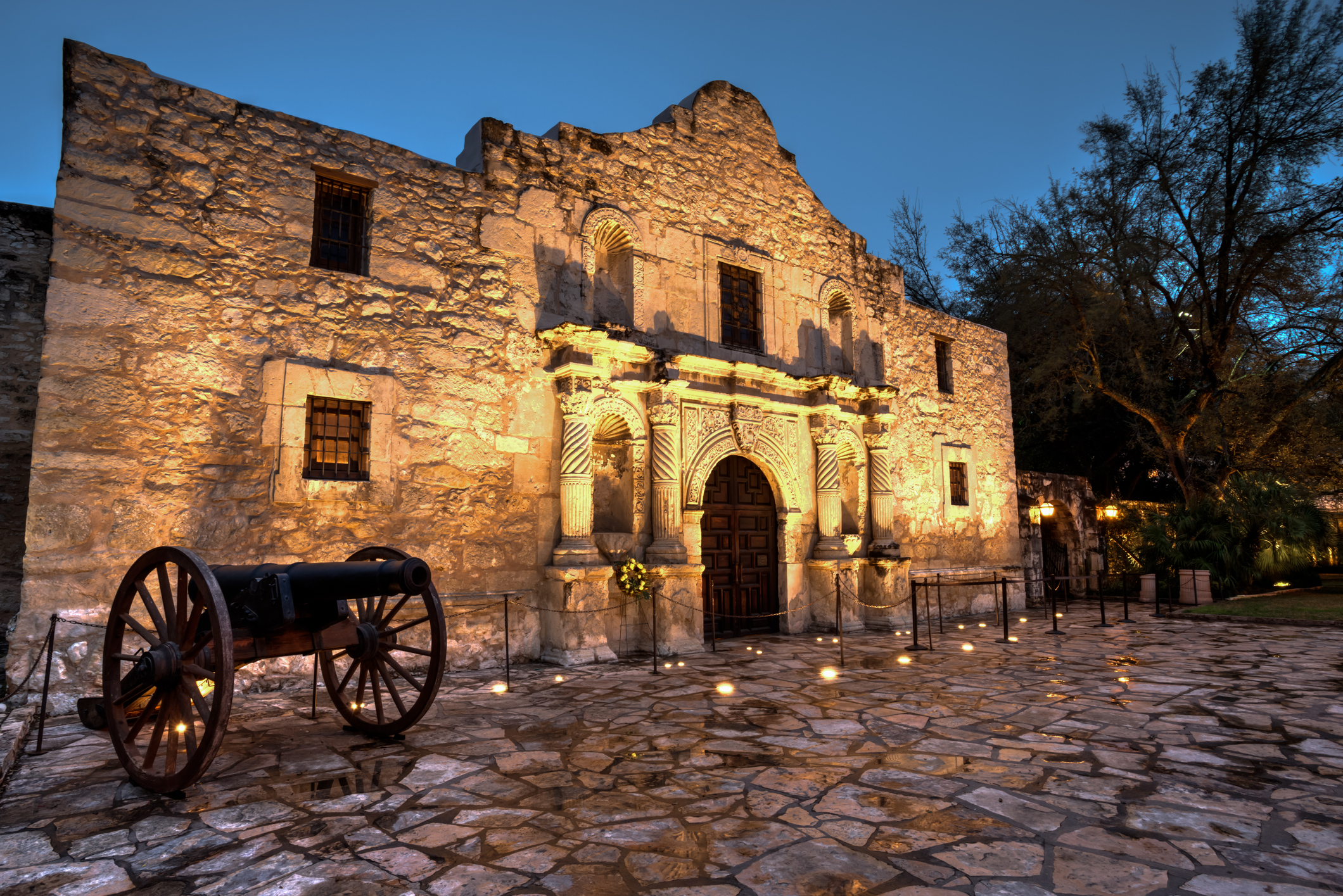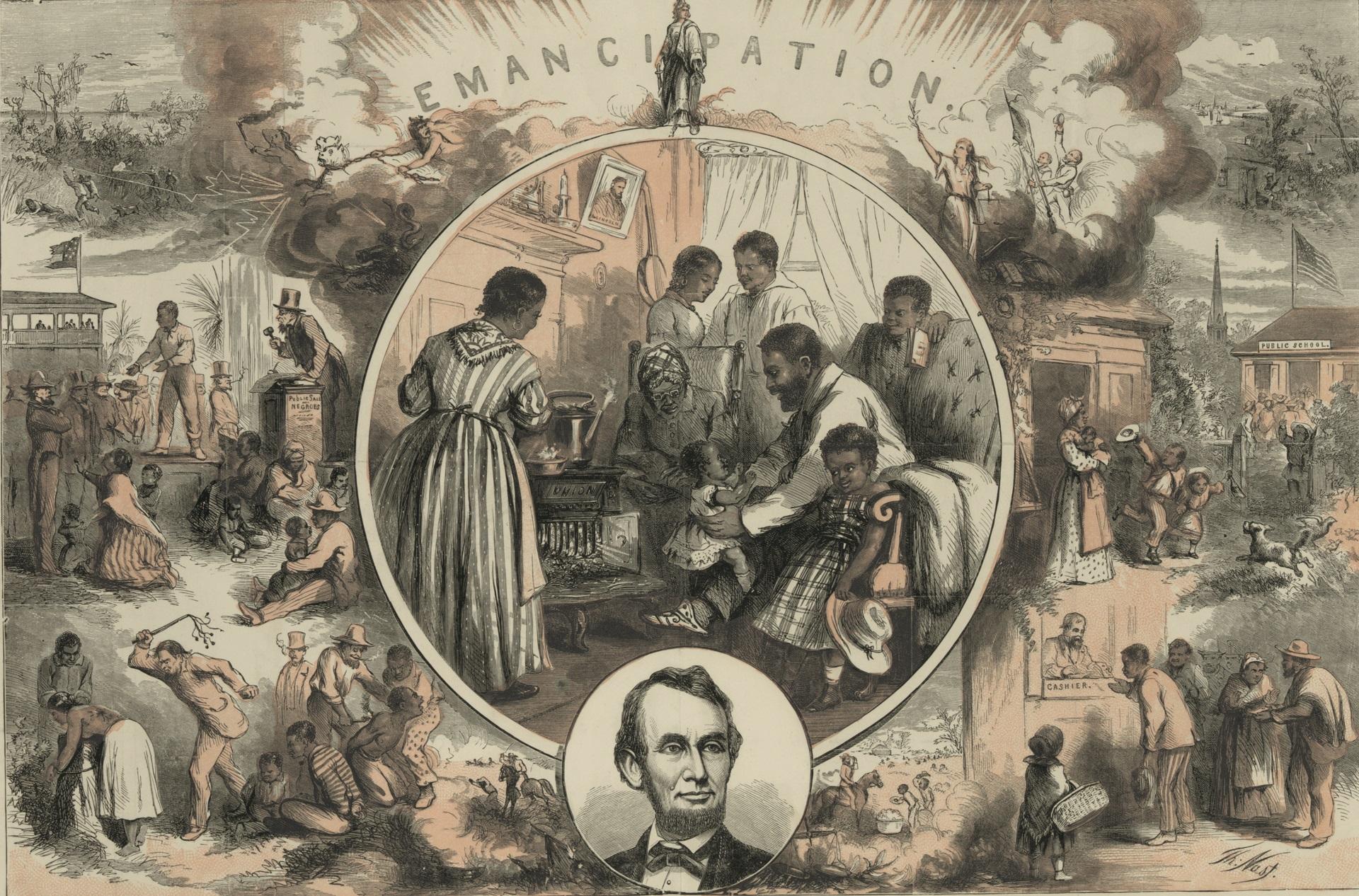Here’s how.
Cancelling the Alamo

The woke iconoclasts come for Texas history—and Texas fights back.
A controversy has broken out in Texas over Forget the Alamo: The Rise and Fall of an American Myth. The 417-page broadside against the “heroic Anglo narrative” of the Battle of the Alamo, as it was dubbed by authors Bryan Burrough, Chris Tomlinson and Jason Stanford, makes all of the predictable 1619 Project-style arguments—except its central target is not 1776, but 1836. According to a promotional synopsis, the book’s central aim is to “show how the sausage of myth got made in the Jim Crow South of the late 19th and early 20th century. As uncomfortable as it may be to hear for some, celebrating the Alamo has long had an echo of celebrating whiteness.”
Forget the Alamo’s thesis—that the Battle of the Alamo’s central place in the “Texas creation myth” is fundamentally racist, that the men who sacrificed their lives during the fight against the oncoming Mexican army were not nearly as heroic as they were portrayed to be, and that the Texan war for independence from Mexico was waged to protect slavery and enshrine white supremacy—has quickly taken hold in all of the credentialed narrative-setting institutions, lauded by progressive critics and uncritically repeated as fact by sympathetic journalists.
But the book itself is plagued by flaws. “I am very well aware of how left-of-center the whole American history profession has become,” says Kevin Roberts, a historian and CEO of the Texas Public Policy Foundation. “But I was astonished by the groupthink with this [embrace of the book]. It’s not a surprise that most historians’ political inclinations are going to align with the authors—the surprise was that they wouldn’t even offer a mild critique of any of the major problems in the book, which is that their historical research is awful. It’s riddled with omissions. Even if I agreed with the thesis of the book, I would have given it an F and told the student to rewrite it. It’s just embarrassing.”
It is a misunderstanding to view the book as a serious attempt to tell the truth about Texan history; its central purpose is political, not academic. As with the 1619 Project—which succeeded in making racism and white supremacy the core of the American tradition in the eyes of the ruling class—the release of Forget the Alamo initiated a process that serves as a blueprint for how the left wields institutional power to shape elite opinion: Left-wing activists create an ideologically skewed narrative under the auspices of beginning a “conversation,” rubber-stamp it with the imprimatur of elite institutions, and then weaponize that institutional legitimacy to discount and discredit any of the narrative’s critics as jingoistic reactionaries.
Once Forget the Alamo was embraced in elite circles, the progressive intellectual establishment was quick to paint the debate over the book’s dubious account of Texas history as between hard-nosed, objective historians on one side and chauvinistic right-wing propagandists on the other—what left-wing Los Angeles Times columnist Mark Barabak smugly described as “caught between those who like their history soothing and sanitized and others who prefer a truer, if less comfortable, rendering.” Never mind that none of Forget the Alamo’s authors are historians, and one of the three is literally a Democratic Party operative—facts have little bearing on the preferred ideological narrative of the moment. “The company line for people who are historians was that this is a great book, and you darn well better agree with that,” says Roberts.
Don’t Mess With Texas
Rather than assume the GOP’s traditional stance of appeasement on cultural issues, Texas Lieutenant Governor Dan Patrick went on the offensive against Forget the Alamo’s “fact-free rewriting of TX history,” canceling a discussion panel featuring the authors scheduled at the state history museum. “We must make certain that the information being put forward at state-sponsored events is well-researched and based in fact,” Patrick said in a statement to local media. “That is not the case with Forget the Alamo, which has been debunked by a number of professional historians who point to the book’s shoddy research and selective use of facts. With its incendiary title, the authors clearly want to make Forget the Alamo another 1619 Project—a polemic posing as history which has also been debunked.”
The reaction was what one would expect. “I’ve worked all over the world for 35-plus years and I had to return to Texas to get my first government censorship,” tweeted one of the book’s three authors, repeating a talking point that was widely echoed in Texas media. (“Forget, for a moment, the Alamo. Remember the First Amendment,”declared the title of a July 8 missive from the Austin American-Statesman editorial board). But the willingness of a high-ranking GOP official to stand firm in the face of elite outrage, and to enter the fray to fight the progressive abasement of American history rather than to protest weakly from the sidelines, is a positive sign.
In June, Governor Greg Abbott—though not always a reliable executive when it comes to the culture war—signed into law a bill that created the “1836 Project,” which “would establish,” according to the bill analysis, “an advisory committee to promote patriotic education and increase awareness of Texas values.” Later that month, Texas became the third state to ban critical race theory in public K-12 education.
The Purpose of the Past
Americans, Irving Kristol wrote in 1996, “have a most emphatic relation to our past—an ideological relation, some would say.” Rather than a shared ethnicity, institutional religious authority, or any number of other traditional sources of national identity, our self-conception as a people is rooted in a collective attachment to our distinct political inheritance. We are defined by the story we tell about that inheritance; how we understand our history has everything to do with how we understand ourselves.
If the progressive project is to succeed, it must recast American history as a source of shame rather than wisdom and inspiration, replacing all residual loyalty to the past with allegiance to the symbols and pieties of the new regime. Independence Day and the national anthem are out, hopelessly passé and chauvinistic; true patriotism, as Joe Biden has argued at various intervals, is paying higher taxes and continuing to wear one’s mask indefinitely post-vaccination.
The crucial importance of our historic understanding is precisely why American history is the central target of the radicals at the vanguard of our revolutionary moment. History is, ultimately, where the fight for America will be won or lost. The national GOP has been slow to realize this—just look at the near-unanimous Republican support for the institutionalization of Juneteenth as the new “National Independence Day”—but there are real networks of resistance forming at the state level, as we have seen with the slate of red-state bans on critical race theory and the burgeoning resistance to anti-American history in states like Texas.
Texas in particular “is the big prize,” says Don Frazier, a Texas historian at Schreiner University. “I mean, by 2050 we’re gonna double the size of this state’s population—so all of a sudden, California doesn’t matter so much. The stakes are starting to get really high, and they’re having to come in and try to dismantle the scaffolding of the Texas story, but they’re having a hard time getting it fully dismantled because we’ve been tending to it pretty nicely in this state for years. And so this is a desperate attempt to throw a Hail Mary pass and see what happens.”
Initiatives like Forget the Alamo and the 1619 Project are about the exercise of ideological power, undermining America’s traditional self-understanding with the dutiful compliance of captured American institutions. But as Dan Patrick and the Texas GOP have shown in recent months, much of America is not yet ready to roll over. States like Texas are still filled with decent, patriotic men and women of conviction willing to defend the history of the country they love. Pushing back against these pressures will require more political courage than the institutional conservative movement has traditionally demonstrated.
The American Mind presents a range of perspectives. Views are writers’ own and do not necessarily represent those of The Claremont Institute.
The American Mind is a publication of the Claremont Institute, a non-profit 501(c)(3) organization, dedicated to restoring the principles of the American Founding to their rightful, preeminent authority in our national life. Interested in supporting our work? Gifts to the Claremont Institute are tax-deductible.
Revisionist Black supremacist history can't grasp our shared equality.
Our elites seek a new nation conceived in violence.



